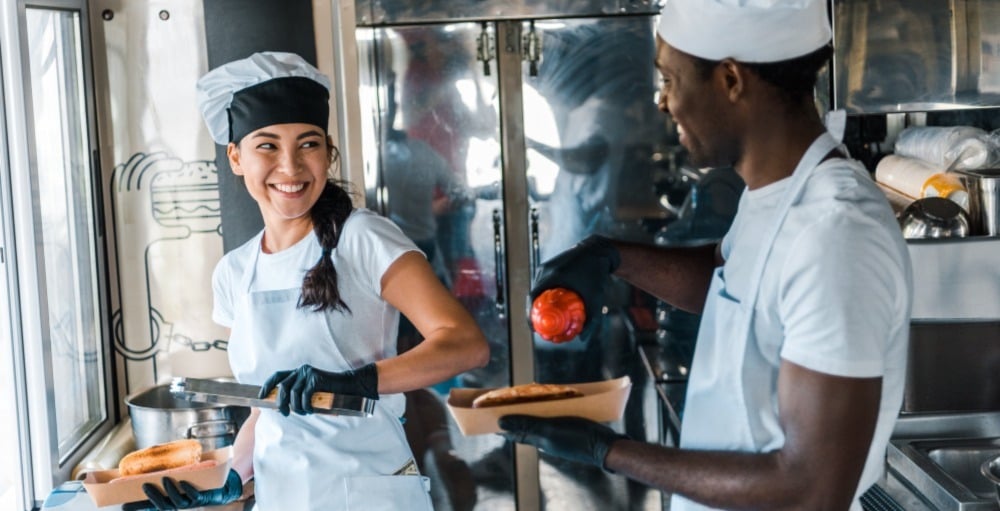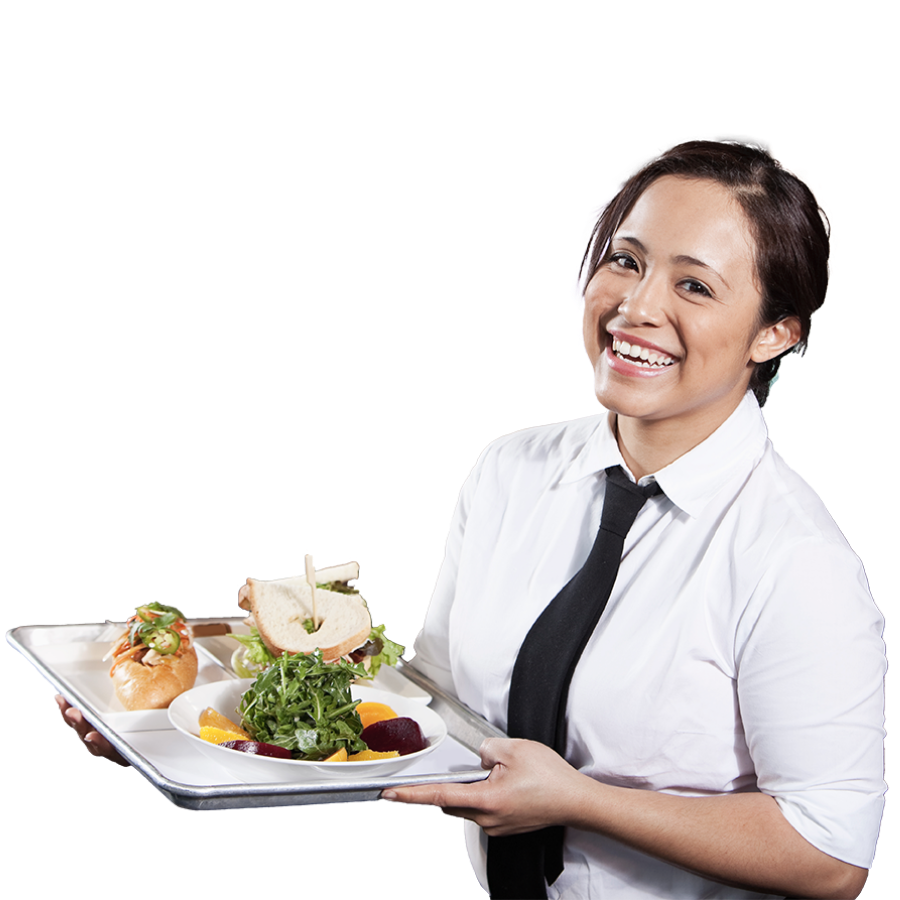Learn about the role of a Food Handler, including on-the-job tasks and your duties to your customers and employer.
What Is a Food Handler?
A Food Handler is anyone who prepares, stores, serves or moves food as part of their job. They may come into direct contact with packaged or unpackaged food, food utensils and equipment, or food contact surfaces.
There are many roles that fall under the definition of Food Handler, including:
- Servers
- Bussers
- Line cooks
- Chefs
- Bartenders/Barbacks
- Food delivery persons
- Packers
- Cleaners
- Managers and supervisors in establishments that serve or handle food
Food Handler Responsibilities
Whether you’re working in the kitchen, bussing tables, or making food deliveries, you must ensure food safety. As a Food Handler, that means safely handling food to prevent contamination and the spread of foodborne illness. Food that has been incorrectly handled has a higher risk of contamination, which can endanger customers, put your establishment at risk and affect your employment.
Reporting Illness and Staying Home When Sick
If a Food Handler is unwell and experiencing any symptoms related to foodborne illness - vomiting, diarrhea, fever or sore throat - they must advise their supervisor. According to food safety standards, sick employees must not handle any food if there is a chance they might make the food unsafe or unsuitable because of their illness.
Additionally:
- If you have open sores, cuts, scrapes or boils, they must be completely covered up with waterproof dressings before you can return to food handling duties
- If you keep working your shift but move to other tasks unrelated to food handling, you must ensure you do not contaminate any food
- If you experience any symptoms that could cause you to contaminate food through your bodily fluids, you must stop working immediately
Maintaining High Personal Hygiene Standards
Unfortunately, people are the worst offenders when it comes to food contamination. Everyone who works within the food industry must have the highest possible standards of personal hygiene to avoid cross-contaminating food. As a Food Handler, you also have a legal responsibility to observe high standards of personal hygiene.
To keep food safe for consumption, this means taking care not to introduce contaminants to food from sources such as the human body – including hands and hair, your uniform and clothing, shoes, jewelry, and even aprons. This also applies to disposable items, such as gloves and hairnets, and equipment like cloths and wipes.
To ensure good hygiene, Food Handlers must:
- Prevent their body, anything from their body or anything they are wearing from contaminating food or food contact surfaces
- Wear clean outer clothing, depending on the type of work they do
- Minimize unnecessary contact with ready-to-eat foods
- Cover bandages or dressings on exposed parts of the body with waterproof coverings
Hand Washing
Washing hands properly and thoroughly is one of the most effective ways for Food Handlers to help reduce the risk of contamination. To ensure that you are washing your hands effectively, follow these six steps:
- Wet your hands under clean running water
- Apply soap to your palm
- Lather, soap and scrub over back and front of both hands up to wrists
- Rinse off soap with clean running water
- Turn off tap, if possible without using your hands
- Dry hands with a disposable towel or an air dryer
Food Handler Training
Food Handler training is the best way to ensure you understand your duties as a Food Handler and are doing everything possible to protect your customers and food business.
Programs like Userve’s Food Handler Training cover essential food safety topics, including how foodborne illnesses spread, safe food handling practices, time and temperature control, cleaning and sanitizing methods, and the importance of personal hygiene.
If you work as a Food Handler, or own or manage a food business, it’s important to complete the relevant Food Handler training for your state.
Some locations also require Food Handler training to be accredited by a government agency or an approved accreditation body. One example is ANAB-accredited Food Handler training. Userve’s Food Handler Course meets this requirement.
Front-of-house, back-of-house, or on the delivery route, all Food Handlers should fulfill the responsibilities outlined above to ensure a safe food experience for the customers they serve. To find a Food Handler Training Program in your state, visit our programs page or contact us today.

